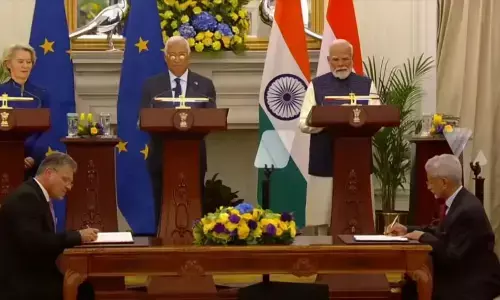Testing time for Pakistan as FATF meets to scrutinise compliance report

- The FATF placed Pakistan on Grey List in June 2018 and came up with 27-point Action Plan for graduating it within one year period.
- According to FATF, if Pakistan fails to meet the implementation of the 27-point plan, the country could be blacklisted.
BRUSSELS: It's a testing time for Pakistan to prove the measures taken against outfits and persons involved in offences of money-laundering and terror financing as Financial Action Task Force (FATF) Plenary and Working Group meetings begin in Paris from Monday.
The FATF placed Pakistan on Grey List in June 2018 and came up with 27-point Action Plan for graduating it within one year period.
It includes safeguards against money-laundering and terror-financing by banned outfits and non-government entities through banking and non-banking jurisdictions, capital markets, corporate and non-corporate sectors like chartered accountancy, financial advisory services, cost and management accountancy firm, jewellery and similar related services.
Sources reveal that a compliance report prepared by the Securities and Exchange Commission of Pakistan will be scrutinised in the presence of Pakistan's Minister for Economic Affairs Division, Hammad Azhar.
According to FATF, if Pakistan fails to meet the implementation of the 27-point plan, the country could be blacklisted.
In August 2019, Asia Pacific Joint Group (APJG) placed Pakistan in the Enhanced Follow up list for failure to meet its standards.
Several media reports emanating from Pakistan indicate the confidence of a high order at evading the Black List at FATF Plenary. Pakistani sources, quoted liberally, in most news reports, claim that it has done very well in its review at the Asia Pacific Joint Group, which met at Bangkok last month.
Reports from India indicate that Pakistan is in dire straits, especially with regard to the Bangkok meeting, where it is reported to have satisfied the Group on only 6 of 27 items in its Action Plan, most of which is oriented towards resolving Pakistan's issues regarding effectiveness.
Pakistan was placed on an enhanced and expedited follow up process announced by the Asia Pacific Group in Canberra in August. This was based on its technical compliance being rated as satisfactory on only 10 points out of 40.
Of the 40 technical compliance parameters, Pakistan was 'non-compliant' on 30 parameters. And, of the 11 effectiveness parameters, Pakistan was adjudged as 'Low' on 10.
Diplomatic sources, other than those in India and Pakistan, are abuzz on what to do with Pakistan at the FATF. Pakistan has reached out to all member nations stating that it was progressing in completing its Action Plan and placing it on the Black List would push it into an economic quagmire, slowing down its transactions and trade, which would impact its ability to repay IMF loans.
Some diplomats, especially the USA and from Europe are of the view that Blacklisting, if unaccompanied by countermeasures, would not, significantly impact the Pakistani economy, while it would surely push the country to complete the Action Plan must faster.
Pakistan has been on the Grey List since 2008. Therefore, giving it more time would make a mockery of FATF procedures, especially when Iran is on the verge of being moved to countermeasures.

















